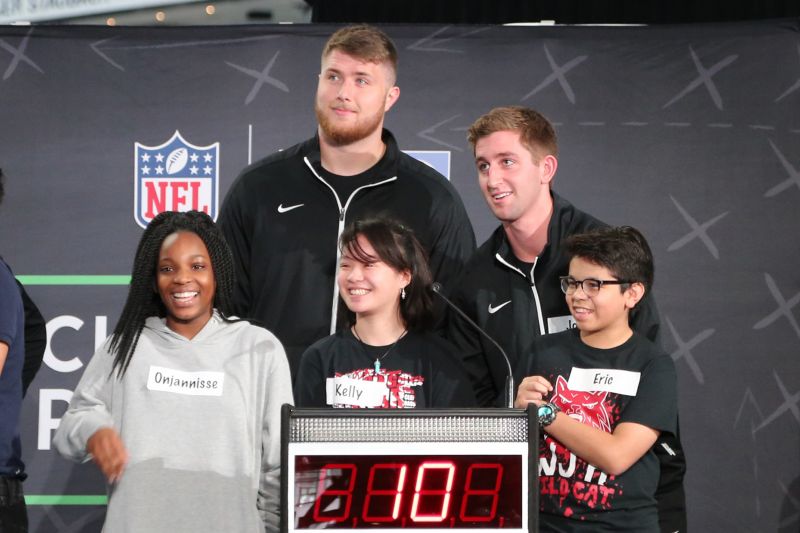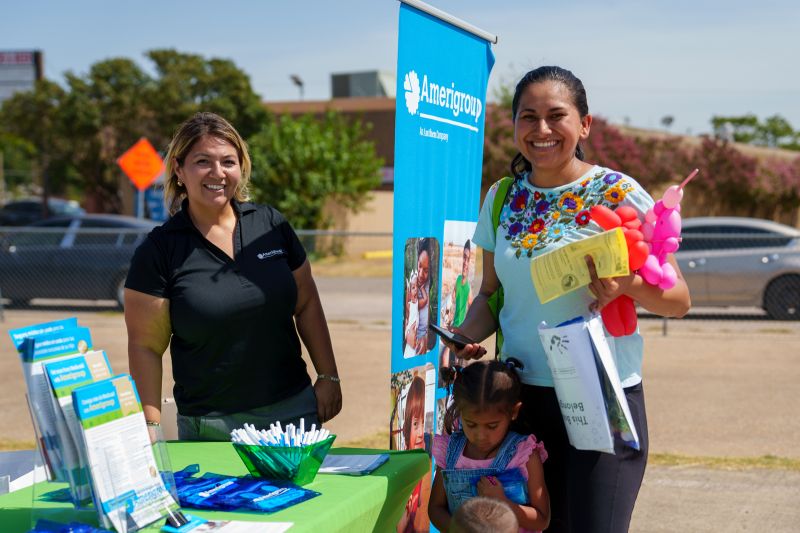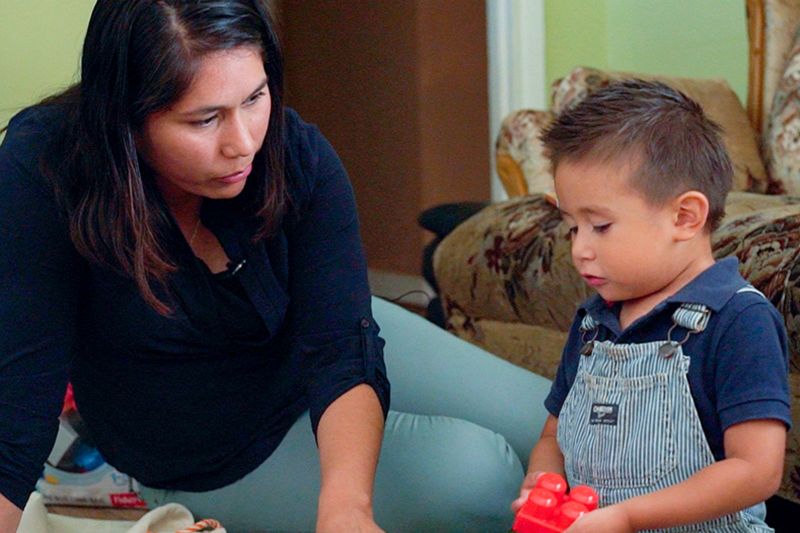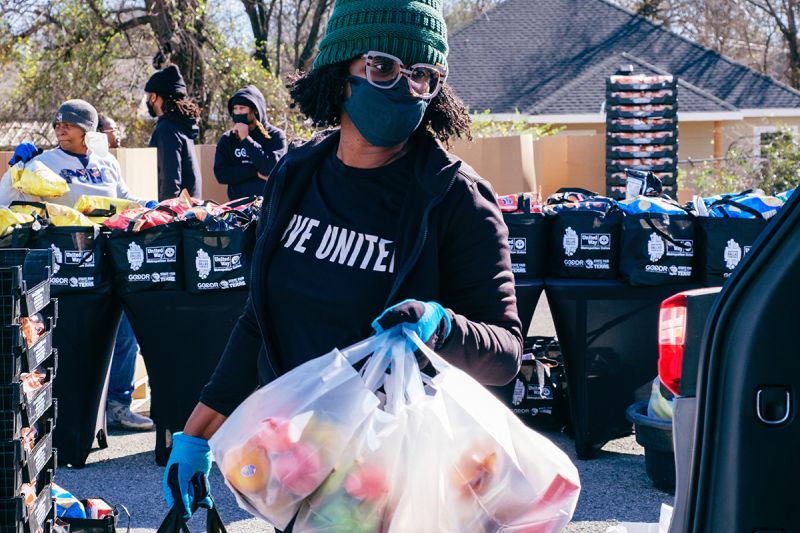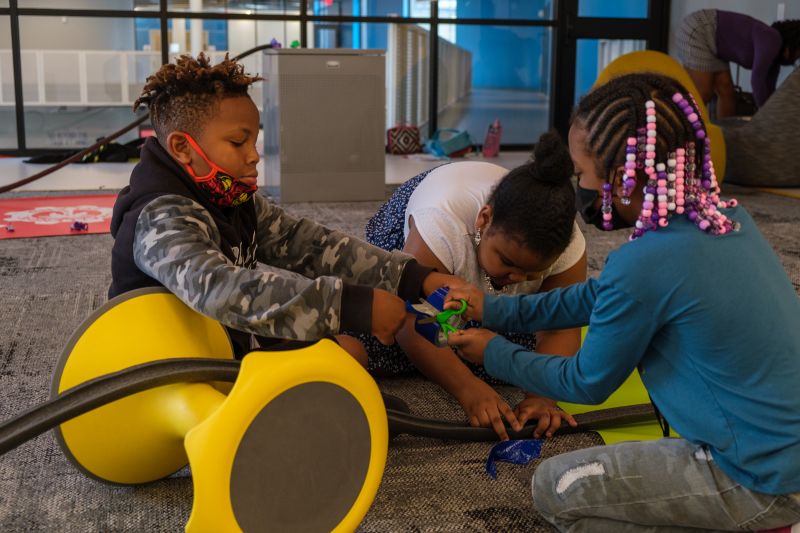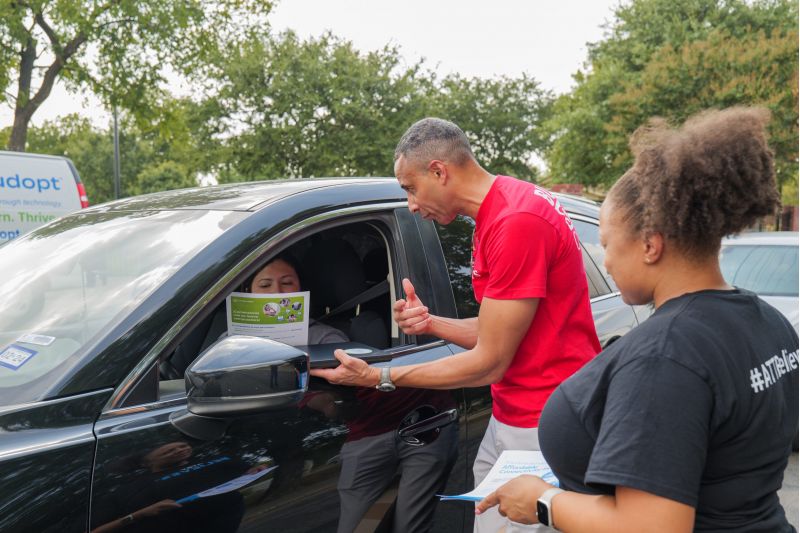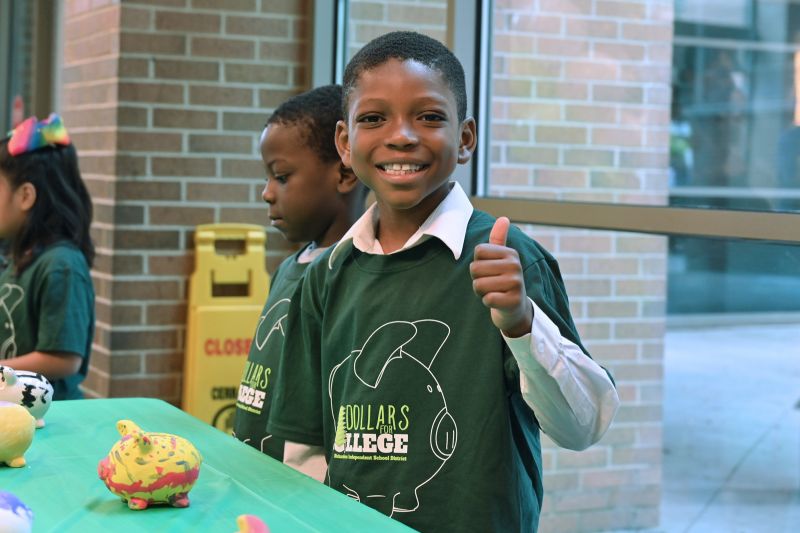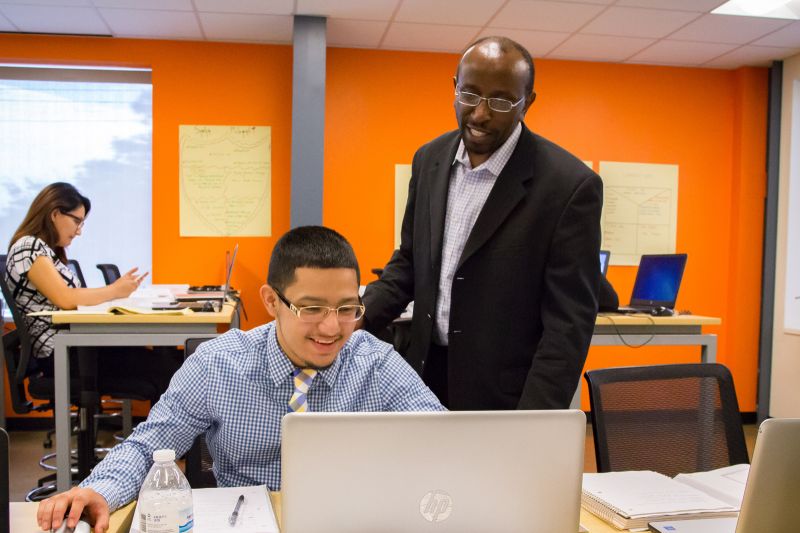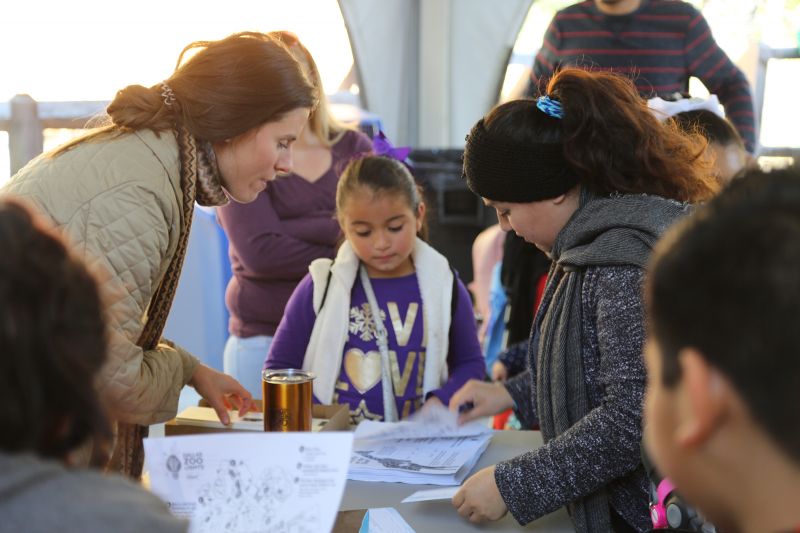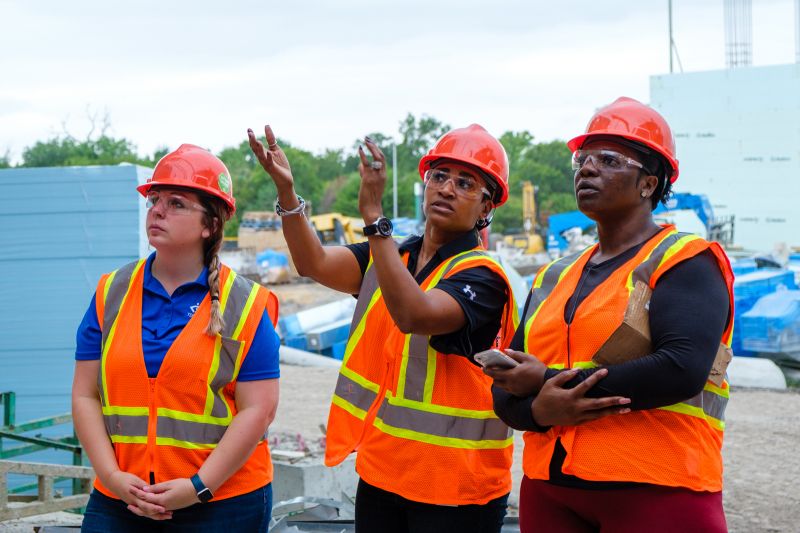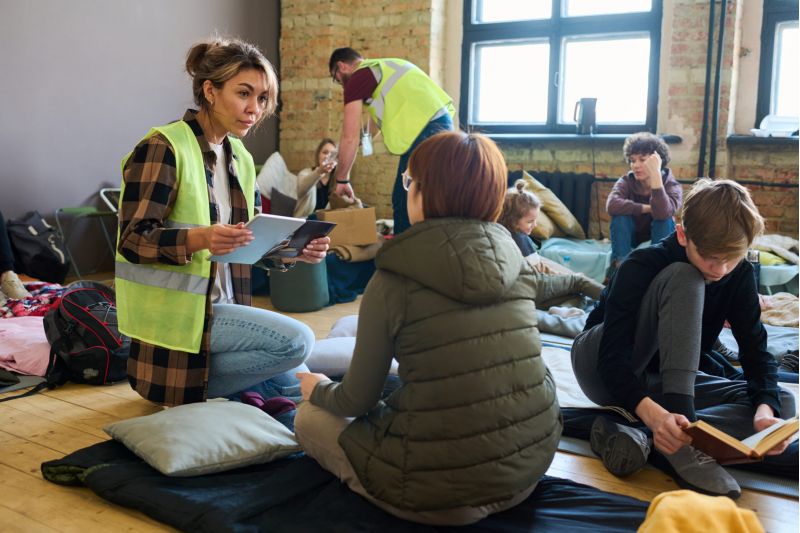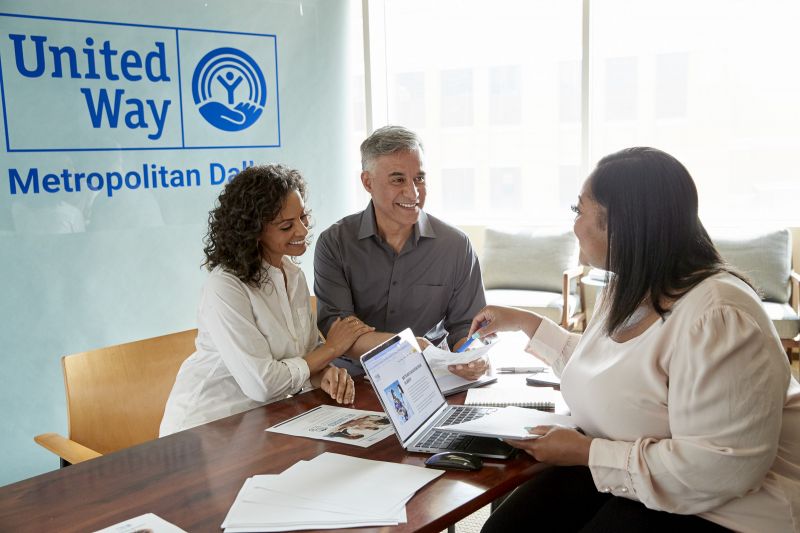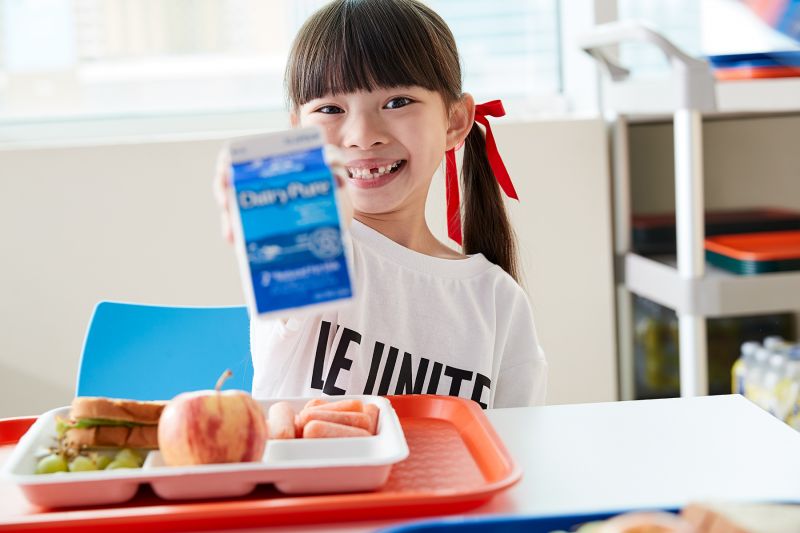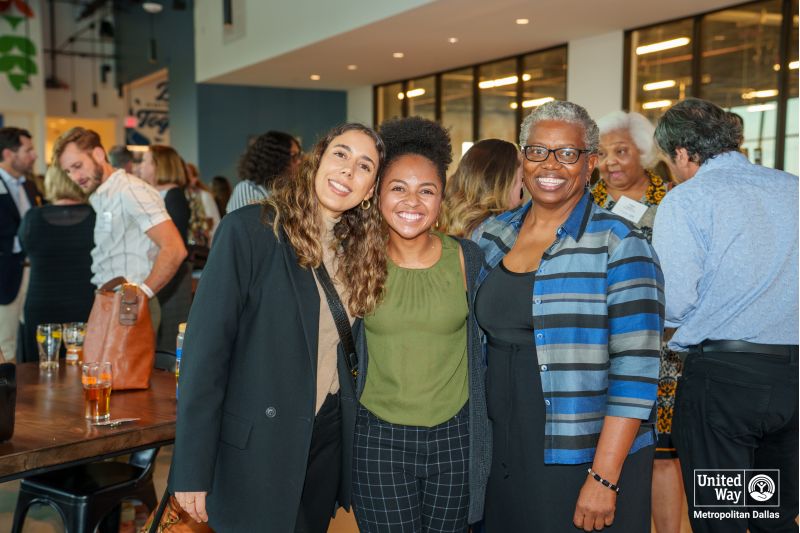
Our Programs
We develop, support and invest in the most impactful strategies and partners to strengthen education, income and health in our community. Together, we can tackle complex, interconnected issues and create lasting change in our community.
Education
-
Character Playbook
Encourages students to build values and character with the support and involvement of NFL players and representatives. -
Help Me Grow NTX
A free family support line that promotes child development by connecting North Texas families with community-based resources. -
Healthy Outcomes through Prevention & Early Support (HOPES)
A parenting education program that empowers parents to create homes where children can thrive. -
Once Upon a Month™
Delivers age-appropriate children’s books every month to stimulate curiosity, language development and learning skills. -
Texas Home Visiting Program
Matches parents and soon-to-be parents with trained home visitors who teach positive parenting strategies. -
Southern Dallas Thrives
Creates impact in Southern Dallas by providing healthy meals, quality childcare, career opportunities & resources to ensure students succeed. -
Heal Play Learn
Learn about Heal Play Learn, a summertime educational program that provides hands-on learning opportunities to students in Southern Dallas.. -
Doorways to Health
Doorways to Health seeks to improve the maternal health outcomes of Black women in Dallas.. -
Digital Bridges
United Way Digital Bridges distributes free laptops and hot spots to students and young adults in Southern Dallas.. -
Flourishing Family
Improves postpartum outcomes by providing free home visits by a nurse or social worker to new parents and other caregivers.
Income
-
Dollars for College
Expands access to affordable, long-term college savings accounts for low- and moderate-income families. -
Homelessness Prevention
Supports North Texans who are at risk of eviction to ensure more families can stay in their homes. -
Pathways to Economic Mobility
Provides families with tools and information to increase savings, improve credit scores, reduce debt and avoid predatory loans. -
Pathways to Work
Creates innovative solutions for moving workers into good jobs and building a strong pipeline of skilled employees. -
Ruth Sharp Altshuler Basic Needs Fund
Provides funding for our annual basic needs grants, allowing us to support North Texans in times of crisis. -
Women’s Workforce Initiative
Provides women with social support and training so they can secure work in high-growth industries. -
Southern Dallas Thrives
Creates impact in Southern Dallas by providing healthy meals, quality childcare, career opportunities & resources to ensure students succeed. -
Targeted Eviction Prevention Program
Learn about the Targeted Eviction Prevention Program, which provides case management to Southern Dallas families to prevent evictions. -
Community Loan Initiative
Increases access to credit for North Texans who otherwise may turn to high-cost payday and auto title lenders. -
Homelessness Services Capacity Building Program
Provides support to nonprofit organizations that deliver homelessness-related services.
Health
-
Healthcare Navigators
Supports North Texans who are looking for health insurance through the Marketplace, Medicaid or CHIP. -
North Texas Healthcare Collaborative
Provides short-term financial assistance to North Texans who lost their employer-sponsored health care coverage during COVID-19. -
North Texas Summer & Supper Council
Supports community organizations that provide nutritious meals to children during the summer. -
Southern Dallas Thrives
Creates impact in Southern Dallas by providing healthy meals, quality childcare, career opportunities & resources to ensure students succeed. -
Doorways to Health
Doorways to Health seeks to improve the maternal health outcomes of Black women in Dallas.. -
kids teaching kids®
A fun and educational program that ensures North Texas families have the knowledge and resources to improve their eating habits.. -
Flourishing Family
Improves postpartum outcomes by providing free home visits by a nurse or social worker to new parents and other caregivers.
Social Innovation
-
Social Innovation Accelerator
Provides entrepreneurs with resources—funding, mentorship and community connections—to accelerate the growth and stability of their ventures. -
Social Innovation Incubator
An organizational and leadership development program for early-stage social ventures led and staffed by women and people of color. -
Southern Dallas Thrives
Creates impact in Southern Dallas by providing healthy meals, quality childcare, career opportunities & resources to ensure students succeed. -
Social Innovation Alumni Program
The Social Innovation Alumni program is designed to continue the investment of human, social and financial capital in Social Innovation Lab.
